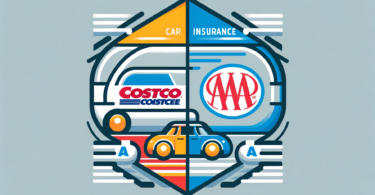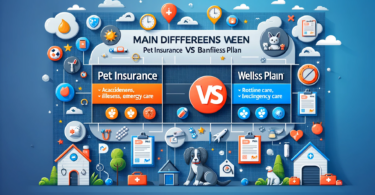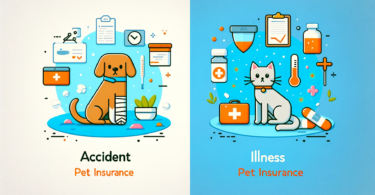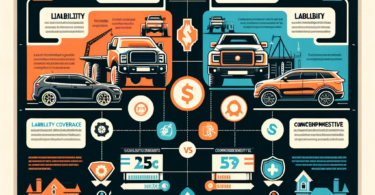When it comes to insuring vehicles, it’s not just about choosing the right company or finding the best rate. It’s also about understanding the unique needs of different types of vehicles. In the bustling world of automotive insurance, two types of vehicles often come up for comparison: cars and trucks. While they may share the road, the similarities often end there. Car and truck insurance are as different as, well, cars and trucks!
Understanding the Basics: What’s the Big Deal?
First things first, let’s break it down. Cars are generally considered personal vehicles, primarily used for commuting, running errands, or leisure drives. Trucks, on the other hand, can range from personal use to commercial heavy-duty haulers. This fundamental difference in usage creates a ripple effect in how insurance companies view them.
Risk Factors: Playing the Insurance Game
Insurance is, at its core, a game of risk assessment. Cars are often seen as lower-risk. They’re smaller, typically involve less powerful engines, and are less likely to be used in risky scenarios like hauling heavy loads or navigating tough terrain. Trucks, especially the larger ones, bring a different set of risks to the table. They’re heavier, more powerful, and often used in work environments that increase their exposure to potential accidents or damage.
Coverage Costs: Counting the Pennies
So, what does this mean for your wallet? Generally, insuring a car is cheaper than insuring a truck. The reasons are rooted in the risk factors mentioned above. But wait, there’s more to it. The type of truck matters too. A small pickup used for light personal activities won’t break the bank like a commercial-grade truck would. The latter requires specialized coverage that accounts for the increased risk and potential damage it could inflict or sustain.
Liability Limits: Protecting Your Assets
Liability coverage, a must-have for any vehicle owner, also differs between cars and trucks. Given their size and potential for causing significant damage, trucks often require higher liability limits. This is particularly true for commercial trucks. Imagine a scenario where a truck causes an accident – the damages could be substantial, hence the need for beefier liability coverage.
Collision and Comprehensive: Beyond the Basics
When we dive into collision and comprehensive coverage, things get even more interesting. For cars, this coverage typically deals with the usual suspects: accidents, theft, vandalism, and environmental damages. Trucks, especially those used commercially, might need additional coverage for cargo, specialized equipment, or increased liability for transported goods.
Personal vs Commercial Insurance: A Tale of Two Policies
Here’s where it gets tricky. Many truck owners use their vehicles for both personal and business purposes. This blurs the line between personal and commercial insurance. Insuring a personal car is straightforward, but a truck used for business might require a commercial policy, which is a whole different ballgame with its own rules and costs.
Safety Features and Discounts: Every Penny Counts
Insurance companies love safety features, and so should you. Cars and trucks equipped with modern safety technologies might qualify for discounts. However, the nature of these features can differ. Cars might have advanced driver-assistance systems, while trucks could have additional features like enhanced braking systems for heavy loads.
Car vs Truck Insurance: Shopping Smart and Comparing Policies
In this final part of our exploration into the world of car and truck insurance, let’s focus on how to shop for and compare policies effectively. This is where the rubber meets the road, and making an informed choice can save you not only money but also a lot of hassles down the line.
1. Assess Your Specific Needs
Before diving into the sea of insurance options, take a moment to assess your specific needs. For car owners, consider factors like your vehicle’s age, your driving habits, and your financial situation. Truck owners, especially those in commercial ventures, should evaluate the nature of their business, the type of cargo they carry, and their risk exposure.
2. Understanding Policy Terms: Speak the Language
Insurance policies can be laden with jargon. Terms like ‘premium’, ‘deductible’, ‘liability’, and ‘comprehensive coverage’ are thrown around a lot. Understanding these terms is crucial in comparing policies effectively. Don’t hesitate to ask your insurance agent for clarifications.
3. Compare Coverage Options: Apples to Apples
When comparing policies, ensure you’re comparing similar coverage options. For cars, look at factors like the amount of liability coverage, collision, and comprehensive coverage. For trucks, pay extra attention to the specifics of commercial coverage, like cargo insurance and liability limits.
4. Look Beyond Price: The Devil’s in the Details
While price is an important factor, it shouldn’t be the only one. A cheaper policy might end up costing you more in the long run if it doesn’t provide adequate coverage. Look at the value of the policy – what it covers, the limits, the deductibles, and the service quality of the insurer.
5. Check Reviews and Ratings: Reputation Matters
In the age of the internet, information is at your fingertips. Check reviews and ratings of different insurance providers. Look for feedback on their customer service, claims process, and overall satisfaction. This can give you valuable insight into what it’s really like working with these insurers.
6. Ask About Discounts: Every Little Bit Helps
Both car and truck insurance providers often offer a range of discounts. These can include safe driver discounts, multi-vehicle discounts, and even discounts for certain professions or affiliations. Don’t leave money on the table; ask about any discounts you might qualify for.
7. Consider Bundling Policies: More Than One Way to Save
If you have multiple insurance needs (like home insurance, life insurance, etc.), consider bundling them with the same provider. Many insurance companies offer significant discounts for bundling multiple policies.
8. Regularly Review and Adjust Your Policy
Your insurance needs can change over time. Regularly reviewing and adjusting your policy ensures that you’re always adequately covered and not overpaying. This is particularly important for commercial truck owners, as business needs can evolve.
Relevant post:
- ShipCover Insurance vs USPS
- Truck vs SUV Insurance Cost
- Car vs Motorcycle Insurance
- Car vs SUV Insurance
- Mortgage vs Hazard Insurance
- Costco Car Insurance vs AAA
- Pet Insurance vs Banfield Wellness Plan
- Accident vs Illness Pet Insurance
- PMI vs Homeowners Insurance
Conclusion: An Informed Choice is the Best Choice
Choosing the right car or truck insurance policy doesn’t have to be a daunting task. By understanding your needs, comparing policies thoroughly, and looking beyond just the price, you can find a policy that provides the protection you need at a price that fits your budget. Remember, the best policy is one that offers peace of mind, knowing that you and your vehicle are well-protected.
With this guide, you’re now equipped with the knowledge to navigate the complexities of car vs truck insurance. Happy shopping, and drive safely!
The Bottom Line: Making an Informed Choice
Choosing the right insurance for your vehicle, be it a car or a truck, boils down to understanding these differences. It’s about assessing your specific needs, usage patterns, and the risks associated with your vehicle.






